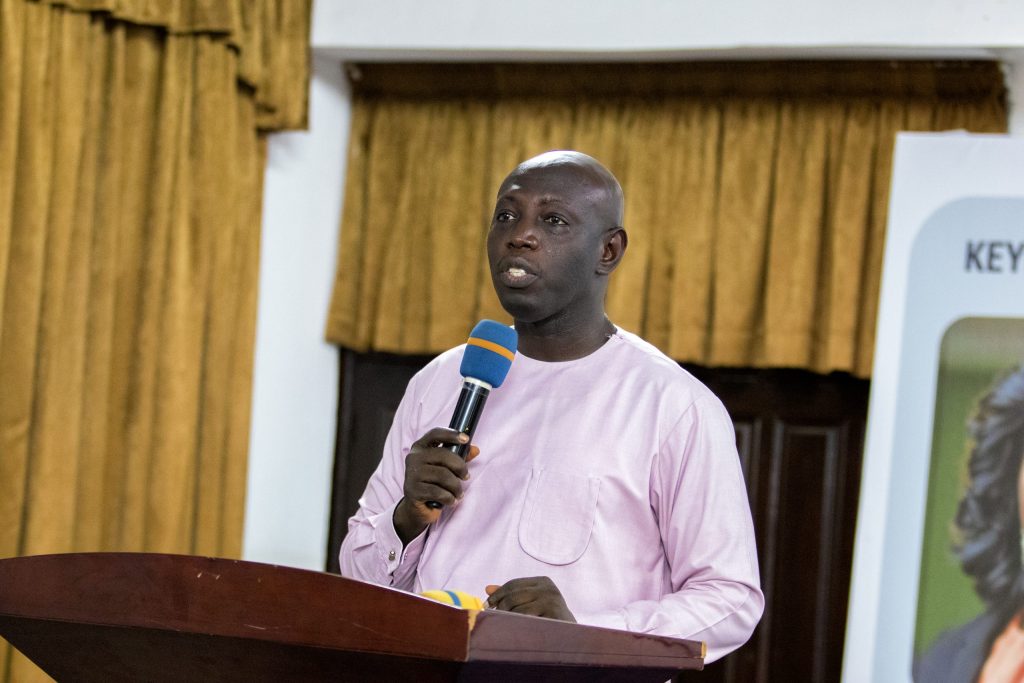Associate Professor Isaac Boadi, Dean of the Faculty of Accounting and Finance at the University of Professional Studies, Accra (UPSA), has highlighted the urgent need for reform in Ghana’s financial system, stating that the country isn’t bankrupt, but rather losing vital resources due to inefficiencies and corruption.
Speaking at a forum on Tackling Tax Revenue Leakages in Ghana, hosted by his faculty, Prof. Boadi stressed that the situation requires immediate and decisive action.
“Ghana is not broke. Ghana is bleeding,” he emphasized. “This isn’t about political parties—it’s a fight between Ghana and corruption.”
He revealed that the country loses roughly GH₵9 billion annually through a combination of tax evasion, corruption, and smuggling. These figures, he noted, have a direct impact on development, reflecting lost opportunities for healthcare, education, and infrastructure.
“These aren’t just numbers,” Prof. Boadi said. “They represent children without classrooms, hospitals without equipment, and dreams that never come true.”
Breakdown of Sectoral Losses
Prof. Boadi presented specific estimates of financial leakages across major sectors:
- Tax Administration: GH₵3 billion lost yearly due to illicit financial flows from wealthy individuals and foreign businesses exploiting legal gaps (GRA).
- Customs and Trade: The World Bank reports GH₵550 million in annual losses from under-invoicing at ports, particularly in machinery and textiles.
- Gold Mining: About GH₵2 billion lost in 2022, as many small-scale miners avoid taxation.
- Oil and Gas: OPEC estimates GH₵1.5 billion in missing revenues tied to production-sharing deals.
- Cocoa Smuggling: GH₵150 million lost each year through illegal cross-border trade.
- Forestry: Unpaid timber royalties from illegal logging cost the country GH₵250 million annually (Forestry Commission).
- Public Procurement: Inefficiencies and waste lead to GH₵170 million in losses (Auditor-General’s reports).
- Fertiliser Subsidy Programme: GH₵100 million lost each year to smuggling.
- Ports and Harbours: Corruption costs the nation GH₵250 million in unpaid duties.
- Informal Sector: The largely untaxed informal economy results in GH₵15.6 million in lost revenue annually.
Root Causes and Impact
The professor identified four key drivers behind these leakages: weak law enforcement, outdated systems, entrenched collusion, and a lack of transparency.
He cautioned that failure to address these issues could further cripple public services, fuel unemployment, and deepen the national debt crisis.
“These losses are not random—they’re enabled by a system that allows even those in power to benefit from its flaws,” he stated.
Path Forward
To address the crisis, Prof. Boadi proposed the following urgent reforms:
- Digitise revenue collection – “Modern problems need modern solutions.”
- Enforce strict penalties – “Impunity makes corruption a business model.”
- Ensure public finance transparency – “Every citizen should know where every cedi goes.”
- Bring the informal sector into the tax net – “Inclusive development requires broader participation.”
He concluded with a call to action: “The facts are undeniable. Real people are suffering. And fixing this demands collective courage and commitment.”

